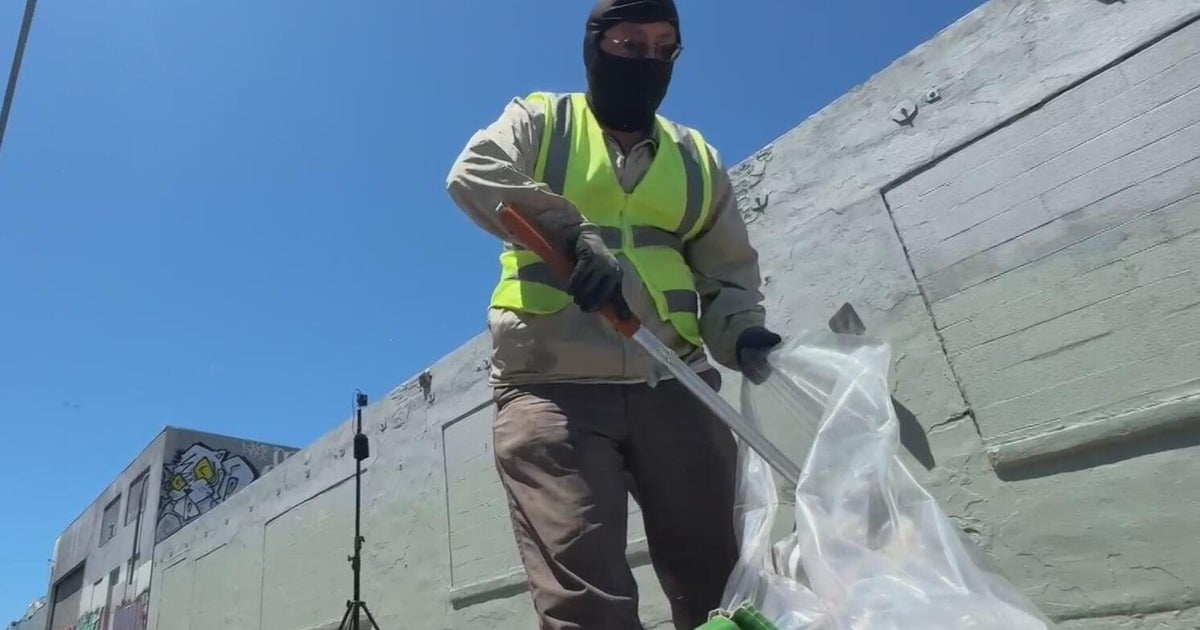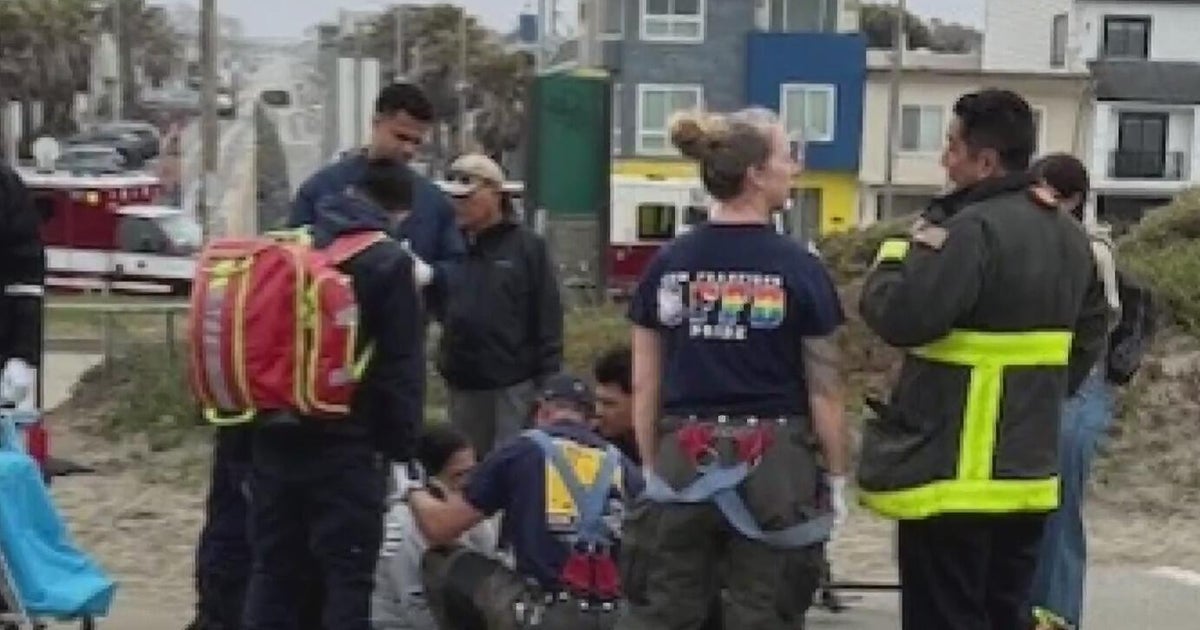SF Supervisors Say City Lags In Moving Homeless From Shelters to Hotel Rooms
SAN FRANCISCO (KPIX) -- San Francisco Mayor London Breed said putting homeless people in hotel rooms during the coronavirus crisis is not proving as easy as it may seem.
"The first thing I thought was, 'wow, we're going to be able to get everyone in a hotel, like, yesterday,'" the mayor told Manny Yekutiel in a video interview for Manny's Livestream. "But then the finances and public health realities sank in. This is a public health crisis and we have to make every decision based on that."
Earlier Thursday, a homeless man tested positive for COVID-19 at the Division Circle navigation center on South Van Ness Ave. Since he had mild symptoms, he was not hospitalized. Instead, the city moved him to a hotel room along with anyone who was near the man at the homeless shelter, as well as anyone 60 or older or who had an underlying health condition.
"This was something that was preventable," said San Francisco supervisor Matt Haney. "We should not have hundreds of people in congregant environments sleeping right next to each other. Brushing against each other when we know that's exactly the type of environment where this virus spreads."
Upon learning of the case, health officials supplied the center with extra masks for both staff and residents to wear at all times.
Additionally, DPH has deployed doctors and health workers at the site to conduct symptom and temperature screenings for staff and residents. Anyone showing COVID-19 symptoms will be tested and relocated to a staffed hotel room for quarantine.
In a joint news release by San Francisco supervisors Hillary Ronen, Matt Haney, Dean Preston, Shamann Walton and Aaron Peskin, the city leaders said the spread of the virus among the city's large homeless population was inevitable and the city government has failed to act to move those in shelters to available hotel rooms.
"This infection could have been avoided," the statement read. "This individual and hundreds of others should have been moved out of shelters weeks ago."
"We knew this day was going to come. We have been talking about it for weeks. We have been saying we've got to move everybody who's unhoused off of the streets into these empty hotel rooms. We have been having folks out on the streets tell us that they feel like the city is just leaving them here to die," said Jennifer Friedenbach, executive director of the San Francisco Coalition on Homelessness. "And the response from the city is, 'well we don't have enough support services inside the hotels so we are not going to move people into those empty hotel rooms.' Well people aren't getting services on the streets now, so what exactly is the difference here? Why would you leave hotels empty? Why would you allow thousands of San Franciscans to sleep on top of each other?"
"It's not as simple as providing hotel rooms," Mayor Breed said. "We will be providing hotel rooms to people who can operate independently."
The mayor said it is a much more complicated situation for those who suffer from mental illness and addiction, as it takes more health care workers and even security guards to keep people with positive cases from escaping.
"We are not going to be able to take over every hotel in the city and be able to move people into hotel rooms and force them to stay here. That's just not going to happen," she said.
The Board of Supervisors unanimously passed a resolution earlier this week demanding that Mayor Breed and city departments urgently procure private rooms to:
Move all shelter clients, especially those who are seniors or have underlying health conditions into private rooms immediately, before they become infected
Move high-risk unsheltered individuals who are sleeping on the street or in encampments into private rooms, before they become infected
The supervisors said they would introduce an emergency ordinance requiring at least 1,000 rooms be used for unhoused people in shelters and mandate that the city lease an estimated 14,000 hotel rooms by the time the coronavirus is expected to reach peak infection on April 28.
Late Thursday afternoon, Randy Quezada, spokesman for the city's emergency operations center, issued the following statement.
"The City is working to protect the health and safety of all San Franciscans. The city's strategy to weathering the Coronavirus threat in our community is grounded in science and guidance from health experts. To best prepare for the weeks and months ahead, we must ensure that our hospitals are able to treat the expected surge of COVID-19 patients. Securing hotel rooms for patients who need a location to quarantine or isolate ensures that we can free up space in our hospitals. The rooms will be used as directed by medical professionals to house vulnerable populations such as homeless residents, as well as first responders and people in congregate living situations who need a place to quarantine. Every action we are taking is based on the advice of public health experts in order to save lives during this pandemic."



